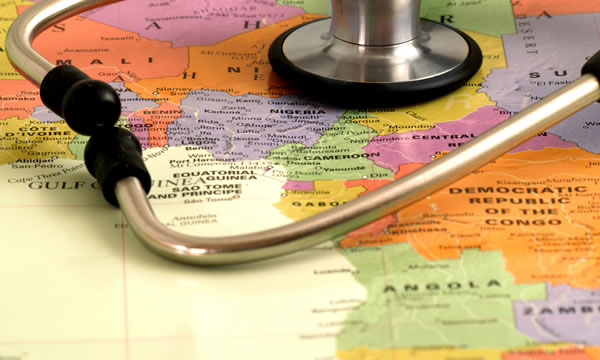Global logistics giant DHL is hailing Africa as the next frontier market for healthcare and life sciences companies, as demand for pharmaceutical products and services skyrockets with increased life expectancy, rapid urbanization, technological development and the rise of the middle class.
In its outlook on key logistics trends in life sciences and health care, titled “Key Logistics Trends in Life Sciences 2020,” DHL describes the world market for pharmaceuticals as doubling over the last decade to a value of about $1 trillion, with expectations to grow by another 3 percent to 6 percent each year until 2016. The outlook ranks Africa (along with Mexico, Turkey, and other developing countries) a “tier 3” market, based on consumption and, increasingly, manufacturing, research and development, and clinical trials.
China alone constitutes “tier 1,” while India, Brazil, and Russia constitute “tier 2.”
With a middle class that has nearly tripled since the 1980s and home to 16 of the world’s 25 fastest growing cities by population, Africa has seen tremendous growth in the life sciences and healthcare sector, as well as investment in the development of health care, especially in logistics, Sumesh Rahavendra, head of marketing for DHL Express Sub-Saharan Africa, said in a statement on the outlook.
“While Sub-Saharan Africa comprises 12 percent of the global population, the region comprises of 24 percent of the global healthcare burden,” he notes. “Companies are increasingly turning to Africa due to the opportunities that the continent offers as it is one of the few locations that can still obtain double digit economic growth.
E-commerce will be a key contributor to the sector’s continued growth. Africa is a burgeoning market for digital commerce, especially mobile commerce, or m-commerce. The continent currently ranks fourth in the world in terms of the number of mobile subscriptions, and, along with the Middle East, is the fastest-growing area for smartphone ownership. Its information and communications technology market is expected to grow from $8.5 billion to $12.5 billion by 2015.
“The healthcare sector will ultimately follow the technology sector as where there is communication, there is ability,” he says. “With technology continuingly evolving, there is talk that consumers will likely soon be able to self-medicate and order over-the-counter drugs via their cell phones or the Internet. These sorts of developments have the potential to drastically change both the healthcare, and logistics, sector.”
The increasing importance of Africa and other emerging markets, along with increasing regulatory demands, cost pressures, and new product requirements, notably around temperature management, are forcing changes in the global supply chains of life sciences and healthcare companies. According to DHL customer surveys, access to emerging markets and direct distribution capabilities are among the most pressing needs of these companies. DHL says it is responding to the industry’s shifting needs by increasing its footprint and capabilities in these areas to facilitate speed to market for its customers.
“Increasing differentiation of supply chains and the need for companies to keep their supply chain flexible to adapt to requirements of innovative products is a key challenge. As innovation in the pharmaceutical industry shifts towards specialties and biotech products, so does the need for temperature controlled, and monitored, cold chain transport and storage, historically only required for shipments of vaccines and blood fractions,” Rahavendra says. “The life sciences logistics model in Africa is therefore changing drastically as, in the last two and a half years, we have seen major growth in hubs like Kenya, servicing East Africa, and South Africa, which plays a key role for the Southern African Development Community.”
He concludes: “We are confident that the life sciences and healthcare sector will continue to flourish in upcoming years due to the on-going investment and development on the African continent. The future is bright for Africa, and the healthcare sector will be one of its star performers.”













